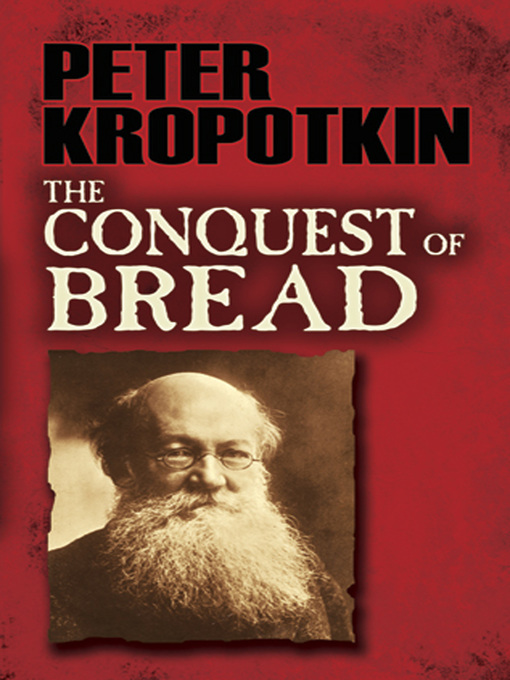- Political Biographies and Memoirs
- Entertainment Biographies and Memoirs
- Cultural and Religious Biographies and Memoirs
- See all
-
Description
-
Details
Kropotkin criticizes the effects of feudalism and capitalism, noting that both systems exacerbate poverty and promote privilege, even in times of abundance. Citing the human propensity toward voluntary cooperation, he proposes the establishment of free, self-sufficient anarchic communes and outlines practical considerations of production and distribution. The author supports his theories with examples from the French rebellions of 1789, 1848, and 1871, and his reasoning anticipates aspects of twentieth-century revolutions in Russia, Germany, and Spain. At a time when many thinkers employed the new Darwinian concept of "survival of the fittest" to justify their capitalist and imperialist goals, Kropotkin pointed out the historic patterns of humanity's best success under cooperative circumstances. A century later, his economic analysis remains fresh and relevant.

Kindle Book
- Release date: September 19, 2013
OverDrive Read
- ISBN: 9780486311180
- Release date: September 19, 2013
EPUB ebook
- ISBN: 9780486311180
- File size: 535 KB
- Release date: September 19, 2013
Kropotkin criticizes the effects of feudalism and capitalism, noting that both systems exacerbate poverty and promote privilege, even in times of abundance. Citing the human propensity toward voluntary cooperation, he proposes the establishment of free, self-sufficient anarchic communes and outlines practical considerations of production and distribution. The author supports his theories with examples from the French rebellions of 1789, 1848, and 1871, and his reasoning anticipates aspects of twentieth-century revolutions in Russia, Germany, and Spain. At a time when many thinkers employed the new Darwinian concept of "survival of the fittest" to justify their capitalist and imperialist goals, Kropotkin pointed out the historic patterns of humanity's best success under cooperative circumstances. A century later, his economic analysis remains fresh and relevant.

-
Details
Publisher:
Dover Publications
Kindle Book
Release date: September 19, 2013
OverDrive Read
ISBN: 9780486311180
Release date: September 19, 2013
EPUB ebook
ISBN: 9780486311180
File size: 535 KB
Release date: September 19, 2013
-
Creators
- Peter Kropotkin - Author
-
Formats
Kindle Book
OverDrive Read
EPUB ebook
-
Languages
English
Why is availability limited?
×Availability can change throughout the month based on the library's budget. You can still place a hold on the title, and your hold will be automatically filled as soon as the title is available again.
The Kindle Book format for this title is not supported on:
×Read-along ebook
×The OverDrive Read format of this ebook has professional narration that plays while you read in your browser. Learn more here.
